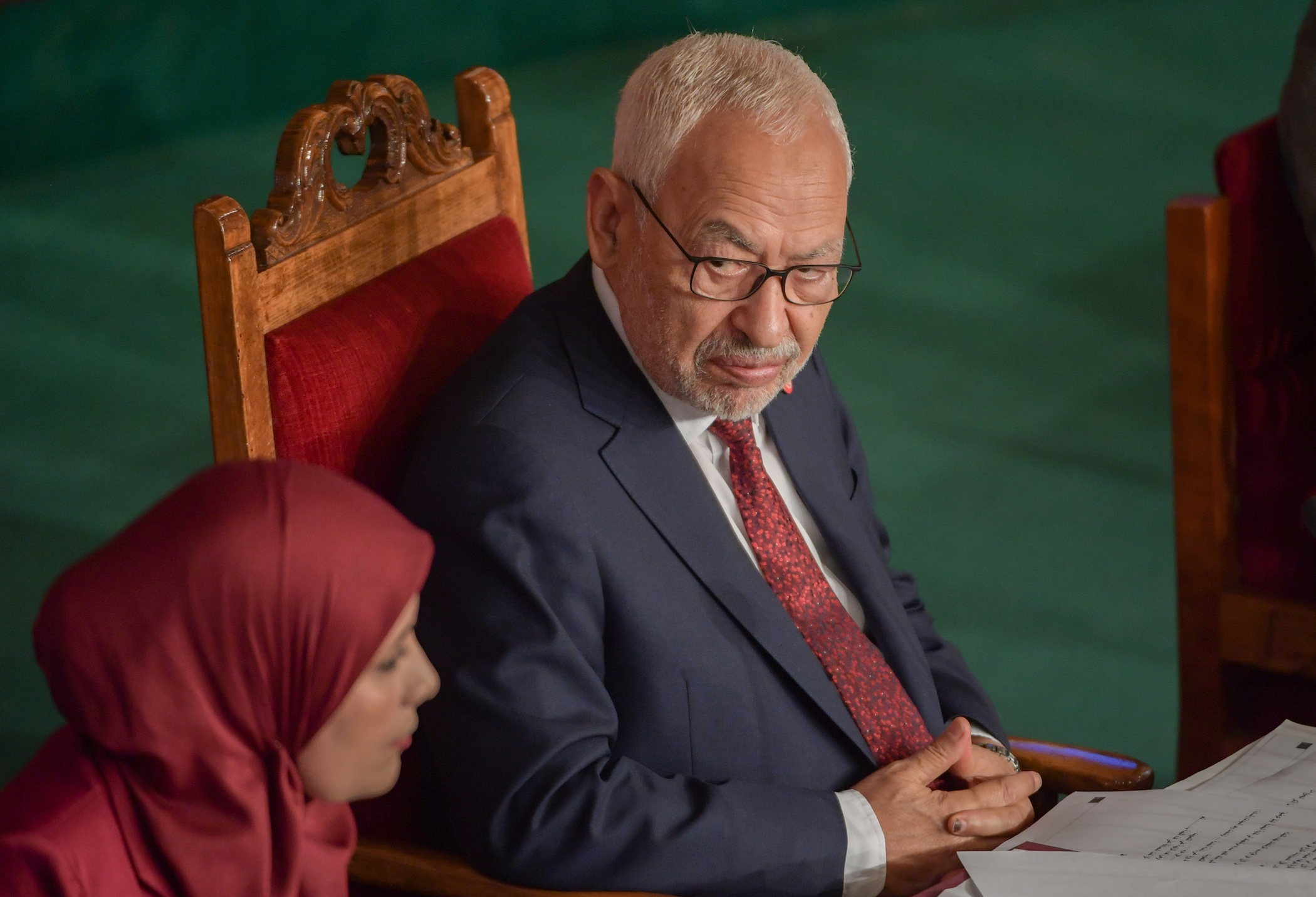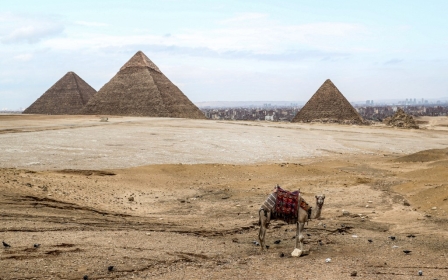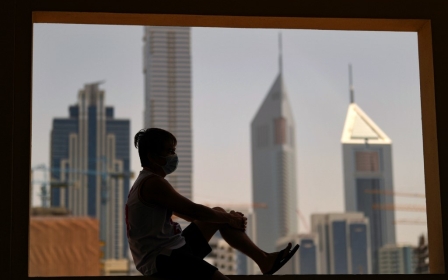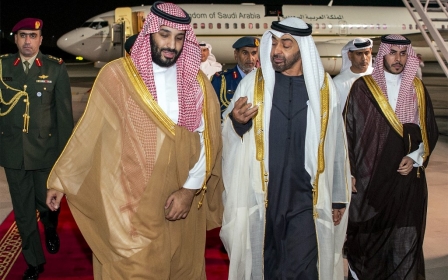Arabic press review: Ghannouchi's wealth revealed following targeted campaign

Documents reveal wealth of Tunisia’s Ghannouchi
Official documents obtained by the Arabi21 news website have revealed the complete wealth owned by Rached Ghannouchi, Tunisia’s parliament speaker and leader of the Ennahda party.
The report comes after a campaign targeting Ghannouchi was widely published by Saudi and UAE media outlets, claiming that he had made great wealth in recent years.
The documents show that Ghannouchi owns one house on a 500-square-metre plot that he bought in the 1970s, before he was forced to leave Tunisia to escape the oppression of Zine el-Abedine Ben Ali's government.
Furthermore, Ghannouchi owns one private car - a 2011 Kia model - as well as one single bank account in the Zitouna Bank with 52,000 Tunisian dinars ($18,000).
New MEE newsletter: Jerusalem Dispatch
Sign up to get the latest insights and analysis on Israel-Palestine, alongside Turkey Unpacked and other MEE newsletters
The documents also indicate that Ghannouchi does not receive any financial income other than the government monthly salary that he receives for his work as parliament speaker, according to Arabi21.
Ghannouchi and his wife have both twice declared their assets to the National Anti-Corruption Commission. The first time was in December 2018, and the second time was in December 2019.
Information published by Arabi21 indicates that Ghannouchi and his family have not been able to return to their home since Ben Ali's rise to power in 1989.
Consequently, a member of Ben Ali’s government, who used to work in a security agency, had seized the house with all the belongings it contained for nearly 20 years. When Ghannouchi returned in 2011, he managed to retrieve his home but found it in a terrible mess and in an uninhabitable condition, Arabi21 said.
Aid workers leave Yemen as virus spreads
Nearly 100 foreign aid workers have been evacuated from the UN relief agencies in Yemen as coronavirus spreads in the country, Asharq al-Awsat newspaper reports.
According to local workers at the UN offices who spoke to the daily, about 98 out of 158 foreign UN employees were put on two chartered flights this week to Addis Ababa, leaving about 60 international staff in the war-torn country.
On Friday, a UN spokesperson said Yemen’s healthcare system “has in effect collapsed” and appealed for urgent funding.
“Aid agencies in Yemen are operating on the basis that community transmission is taking place across the country,” Jens Laerke, spokesman for the UN Office for the Coordination of Humanitarian Affairs (OCHA), told a Geneva briefing.
Aid workers report having to turn people away because they do not have enough medical oxygen or sufficient supplies of personal protective equipment, Laerke said.
Five years of civil war have left Yemen with a malnourished population with some of the world’s lowest immunity levels to disease.
Medecins Sans Frontieres (Doctors Without Borders), the medical charity running the main coronavirus treatment centre in southern Yemen, has recorded at least 68 deaths in just over two weeks.
The figure - more than double the toll announced by Yemeni authorities so far - suggested “a wider catastrophe unfolding in the city”, MSF said.
Yemeni authorities have reported 184 coronavirus infections, including 30 deaths, to the World Health Organisation, the latest WHO figures showed overnight.
“The actual incidence is almost certainly much higher,” Laerke said.
IMF approves emergency fund for Jordan
The International Monetary Fund (IMF) has approved a loan of $396m to help Jordan through the coronavirus pandemic, Al Ghad newspaper reports.
Jordan requested the emergency financial assistance under the Rapid Financing Instrument (RFI). The Ministry of Finance said the loan is provided by the IMF at low interest and comes in a timely manner in light of the restrictions imposed on external borrowing due to the pandemic.
“This emergency financial assistance will help address the country’s balance of payment needs and allow for higher spending on healthcare, containment, and assistance to households and companies most affected by the Covid-19 crisis,” the IMF said in a statement.
Earlier this month, Finance Minister Mohamad al-Ississ said the budget deficit is expected to rise by at least 1bn dinars ($1.4bn) after the government’s public finances had been severely damaged by losing revenue during two months of general isolation.
The IMF had also approved a $1.3bn programme for four years for Jordan in March. It is noted that any new borrowing would increase the record public debt of $42bn.
* Arabic press review is a digest of reports that are not independently verified as accurate by Middle East Eye.
Middle East Eye delivers independent and unrivalled coverage and analysis of the Middle East, North Africa and beyond. To learn more about republishing this content and the associated fees, please fill out this form. More about MEE can be found here.




